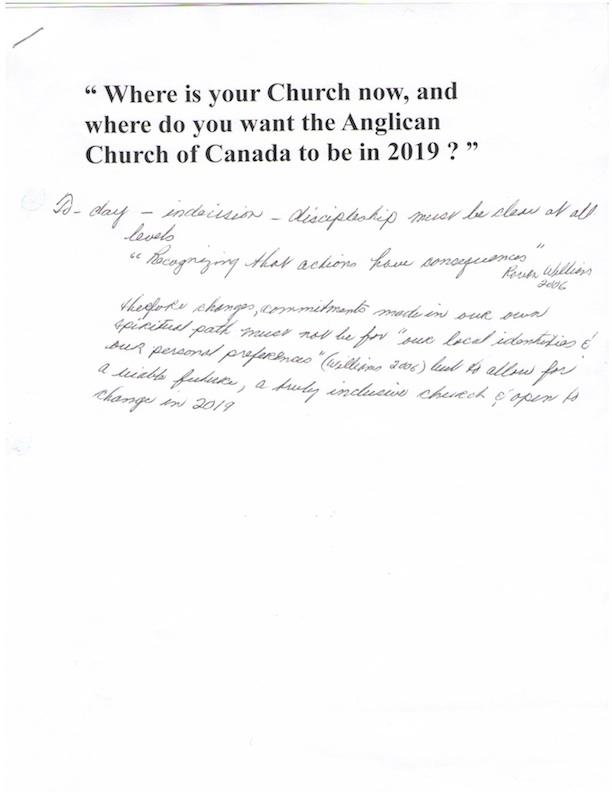Where is your church now, and where do you want the Anglican Church of Canada to be in 2019?”
I would like to see the relationship between priest and people at the parish level given some serious thought. It seems to me that this local focus, often ignored or taken for granted, is worth critical examination and open dialogue. Let me deliberately oversimplify, polarize, and offer comic-book contrasts in my answers to four questions:
How do people see their own role in the parish vis a vis that of the priest? Do they see themselves as active in parish decision-making, as having a vital, ongoing role fully respected by their parish priest? In matters of worship, for example, are their needs and sensibilities acknowledged as primary inputs into the decision-making process? Or, on the other hand, do lay people see themselves as the passive recipients of what worship has to offer? Do they see themselves as sheep being led by their shepherd, people whose essential role is to ‘trust and obey’ the rector, while not neglecting their traditional role as financial supporters of the church?
How do members of the parish laity view their priest? Do they see him/her as the professional, the expert, the source of wisdom in worship and other parish matters? Or do they see their priest as primus inter pares – one voice, hopefully an informed voice – within the process of decision-making in matters of parish life? Are they willing to clearly, politely, courageously voice their concerns with respect to the priest’s behaviour or decisions; are they willing to tell the emperor when he is wearing no clothes? This takes courage: it is much easier, and much more comfortable, to remain silent, to avoid confrontation.
How do parish priests see the role of the laity within their parishes? Do they see the laity as, fundamentally, the theologically uninformed, passive recipients of their more informed, professional and priestly wisdom? Or do clergy see their parishioners as revered brothers and sisters in Christ, as fellow Christians with real, valuable insights to offer in the affairs of the parish, not least of all in making worship decisions. When this is the case, the priest as leader will be deeply respectful of the visions and sensibilities of his/her laity. Such a leader, for example, when entering a parish as the new incumbent, will show respect for the established worship patterns of his/her new congregation, recognizing that their way of doing things on Sunday morning, their local traditions, should not lightly be set aside for the preferences of the new incumbent.
Finally, how do parish priests see themselves vis a vis the lay members of their parishes? Is their behaviour informed by a ‘L’eglise c’est moi!’ attitude, a perhaps unconsciously aristocratic, presumptive, entitled attitude? Or do they exercise shared responsibility with the laity in their parish, accepting mutual accountability, making themselves open to insight and constructive critiquing from their lay brothers and sisters?
My own concern is that the church move away from obsolete, authoritarian models of clergy-lay interaction within the parish toward models of mutual respect and involvement, in other words, toward models which are at once authentically Christian and recognizably 21st century. Of course, the attitudes dramatized above are grossly oversimplified. But I think that many parishes experience, truth to tell, the whole range of attitudes depicted.
So what steps can be taken to move us to a greater awareness of, and improvements in, clergy-lay relations at the parish level? First, I think that we could benefit from an in-depth study of how we clergy and laity are actually interacting with one another (not just how we think we are interacting). Maybe someone could do a neat PhD thesis on this. Second, we need to attend to the theological dimension of human relationships and authority within the parish. Is there such a thing as a theology of shared governance? Thirdly, we need to address this subject in our seminaries to make sure that postulants are at least made aware of the profound importance of how they will relate to their parish laity. And finally, we need to address the subject in our dioceses and parishes openly.
That is my vision for the Anglican church in 2019.




